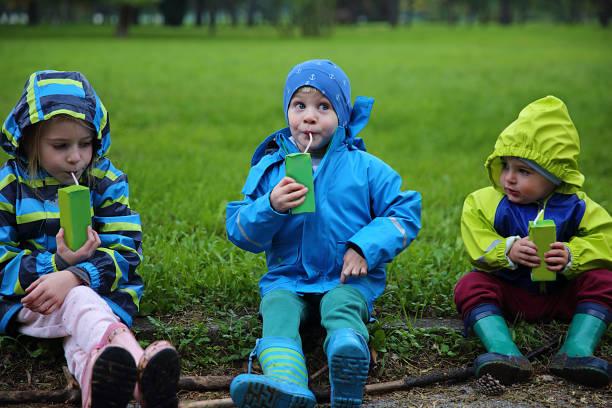Beverage companies fear losing ₹10 packs to plastic straw ban
- May 22, 2022
- FMCG HORECA BUSINESS

The ban on single-use plastic, effective from July 1, poses a challenge to makers of cool beverages such as Frooti, Real, Tropicana and Maaza, who attach small plastic straws to help buyers puncture the juice boxes and drink up.
Any alternatives, such as attaching a paper straw or redesigning the juice box to a tear-the-seal-and-drink option, may force these companies to abandon their preferred, affordable price point of ₹10 per unit. Besides, many of these companies are finding it difficult to source paper straws locally and are forced to import from countries such as Indonesia, China, Malaysia and Finland. “There is no sustainable alternative to integrated plastic straws available in the country today. So we are working on importing paper straws… Importing paper straws would also have cost implications on companies and lead to loss of revenue to the government exchequer,” said Mohit Malhotra, CEO of Dabur IndiaNSE -0.82 %, which makes the ‘Real’ fruit juice brand.
Parle Agro, maker of the Frooti brand, has appealed to the government to postpone the implementation of the ban by at least six months. CEO Schauna Chauhan says that a postponement of the ban will allow packaging companies to build the right infrastructure needed to source paper straws locally. “Even getting approvals from regulatory bodies after appropriate testing to manufacture paper straws will require time. While the transition process has already begun, the short deadline is a matter of great concern,” she said.
In August 2021, the environment ministry had notified plastic waste management rules, banning single-use plastic from July 2022. The ban covers plastic plates, cups and cutlery, wrapping covers, PVC banners, stirrers, earbuds with plastic sticks, candy sticks, flag sticks and cigarette pack wrappings.
Cost of Transition
While the food industry has seamlessly moved to disposable wooden cutlery (mostly made using bamboo) by passing on the added cost to end-customers, beverage manufacturers are worried about the higher cost they may incur on the transition. The percentage increase in cost, according to Parle’s Chauhan, is approximately 122%.
“But if companies were to import the straws, the cost goes up by 259% and 278 % for PLA and paper straws respectively,” she said.
PLA straws come under bioplastics, as they are made from corn starch, and are fully compostable.
India produces and sells a total of 6 billion packs of juice boxes (with plastic straws attached) every year. Dabur, Parle Agro, Coca Cola (Maaza brand) and Pepsico (Tropicana) sell nearly 60% of their fruit juices in small packs, as per industry estimates.
“The Rs 10 price point offers very thin margins to beverage makers, but it helps them to connect with a wider customer base,
” said Chaitanya Kalia, partner & sustainability practice leader at EY, a consulting firm. “At that price and quantity, beverage manufacturers will find it difficult to introduce a greener alternative. The industry needs to find innovative solutions to safeguard environment,” he added. According to Parle Agro, 1.3 million PLA or paper straws are made in India daily at present, as against the daily requirement of 6 million straws.
Beyond cool beverage manufacturers, dairy companies also use carton box-with-straws to sell their products. A few pharma companies too have products (like ORS drinks) that are sold in carton boxes with straws attached.
“The industry does not want to sell juice boxes without straws – as it will kill the purpose of serving the beverage in a clean carton,” said Praveen Aggarwal, CEO of Action Alliance for Recycling, which lobbies for Pepsico, Coca Cola and others.
“If straws are not attached, consumers will use pen-tips, pins or nails to open their juice box. That can be a bad customer experience,” he added.
Coffee shop chains like Starbucks provide paper straws to their customers – but these are of a larger (6-8mm) diameter. The challenge would be to manufacture paper straws of smaller diameter (3-4 mm), that will not cave in after being immersed in a beverage for a few minutes.
Plastic straw manufacturers are in a wait-and-watch mode.
They are hoping the government may extend the ban for at least a few months. But an appeal made by beverage manufacturers a few months ago fell on deaf ears. There is a good probability of the ban coming into effect from July.
“Over a thousand products are made using single-use plastic; straw and plastic cutlery is just a small part of it. Share of plastic straw in environment degradation is very less… so just banning plastic cutlery will not help in any manner,” said Rajesh Domadiya,
, proprietor of Aditya Plastic Industries, a large plastic straw manufacturer.
“The government has not given much thought to the ban… but it has landed several industries in trouble. We’re trying to make biodegradable PLA straws… But it may be some time before we set up our production units,” he added.











